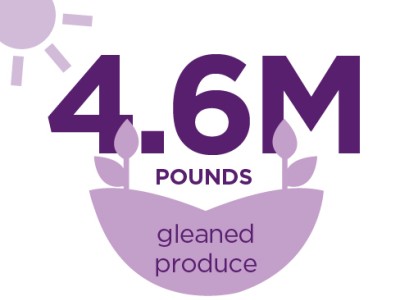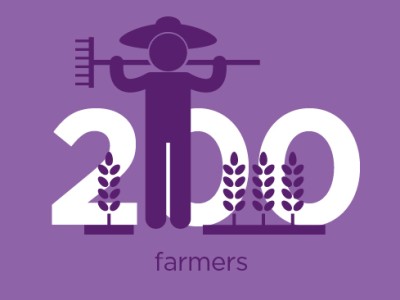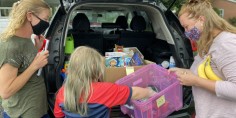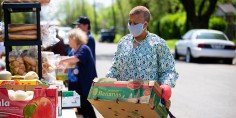With support from The Duke Endowment, SoSA is working to expand its efforts in rural North Carolina. The Endowment’s support will help more United Methodist churches get involved and increase fresh produce distribution in their communities. SoSA will measure success by tracking the amount of produce rescued and distributed, the number of church volunteers, and the number of participating congregations.
“Food plays a central role in church life and in a congregation’s service to its community. As a networking organization, Society of St. Andrew helps churches that may not have the capacity on their own to engage in healthy food system work — and accomplish much together.”
The aim of our support, Richardson-Frick says, is to increase nutrition, reduce disparities and create a better future for rural communities, with the church serving as an anchor institution for positive change.
1. The Challenge
According to Feeding America, nearly 1.6 million people in North Carolina — or 15 percent of the population — are “food insecure,” which the USDA defines as households that lack consistent access to adequate food. In South Carolina, the number is nearly 690,000, or about 14 percent.
Nationally, the USDA estimates that 41 million people, including nearly 13 million children, are food insecure. That breaks down into 1 in 8 individuals and 1 in 6 children.
At the same time, nearly half of the food grown, processed and transported in the U.S. goes to waste. According to the USDA, the nation throws away 133 billion pounds of food each year, totaling $161 billion.
One major area of food waste is in farm fields, where crops that don’t meet top-grade quality — sweet potatoes that are too big, for example — are left to rot or be plowed under.











